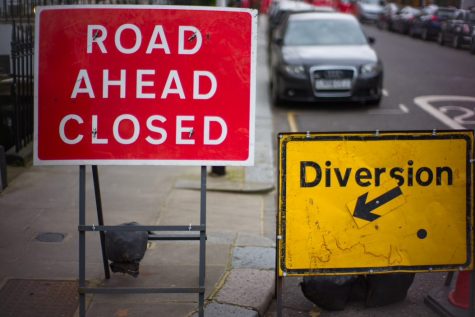Emotional Abuse is Abuse
December 14, 2020
What exactly is emotional abuse? Emotional abuse is a way for an abuser to break you down mentally by using emotions to criticize, shame, or manipulate you. Emotional abuse can rear its head in the form of verbal abuse such as yelling or swearing, as well as gaslighting, and rejection. Anyone is capable of emotional abuse such as family members, significant others, friends or even employers. That said, equally, anyone can be a victim of emotional abuse; no matter the gender, sexuality, or race. This is one of the most common types of abuse yet it seems as if many people don’t acknowledge it. This is especially true when compared to physical abuse. People may think emotional abuse isn’t as damaging physical abuse, but in reality it can take a toll on your mental health just like any other form of abuse. I want to spread awareness for emotional abuse, acknowledge that it is real and discuss ways to recognize it.
Unfortunately, I have experienced emotional abuse in the past, as I’m sure most people do at some point in their life. I am able to better recognize the warning signs of emotional abuse because of this. This form of abuse is very difficult to identify and because of this it could go on for years, eating away at a person’s mental health. How can we spot or recognize emotional abuse, in our own lives and the lives of others? There are at least seven major warning signs of emotional abuse: overly critical, intentional humiliation, intimidation, isolation, rejection, exploitation, and micromanaging; or simply having a harmful amount of control over you. I found a short video on YouTube that goes over each of these in more depth, I’ll leave the link here: https://www.youtube.com/watch?v=K_CCA7KAou4&t=1s. There are also various hotlines listed below the video that you or a loved one could use to seek help for emotional or physical abuse. You can visit their YouTube channel, “Psych2Go”, for similar informative content.
There are three warning signs that I’d like to cover here. I want to speak more on red flags such as intimidation, intentional humiliation, and control. Firstly, intimidation is a very dangerous phase of emotional abuse because it could eventually lead to physical abuse. Intimidation can be done by yelling, verbal abuse, and by damaging things around you; like smashing dishes or punching walls. This could make you be afraid of speaking out against or even leaving an abuser because of the possible consequences that could follow or how your actions could set them off. This is similar to physical abuse in the sense that many people are afraid to let those around them know they’re in an abusive relationship. I’ve heard people say things like, “It’s not that hard to leave.” or, “I would never let that happen to me.” It’s important to remember that not everyone is the same, and not everyone has experienced abuse in their life. I feel as though saying things like these are insensitive and belittling; or as if this abuse they underwent was all their fault.
Intentional humiliation is a way for an abuser to degrade your appearance or intelligence. This can be very harmful to your self-worth and self-esteem. It can also keep you chained to the abuser, especially if they make comments like, “I’m the only one who could ever love you.” or, “you’ll never find anyone as good as me.” Other forms of humiliation may be name-calling, which could simply be them directly calling you stupid or a loser. Name-calling can also be done with derogatory pet names, mocking your appearance or habits. Humiliation can also be just that, public embarrassment, where they pick fights in public spaces or around family and expose things about you that were confidential or private.
Emotional abusers often tend to have a harmful amount of control over their victims. They may control your plans, invade your privacy, and make demands of you or your location. They may even control what you wear, and how often you talk to them or reply to them. They may control you with intimidation, manipulation, or gaslighting. Isolation is another form of control, where an abuser can keep you from seeing and interacting with friends and family because they’re jealous. If someone has a harmful amount of control over your life and treats you like you are untrustworthy or treats you like a child they are probably emotionally abusing you.
It is unfortunately very common for emotional abuse to go unnoticed by others. It’s also easy for someone to become a bystander of emotional abuse because someone’s physical state does not always reflect their emotional state. For example, many people keep their feelings to themselves to “unburden” others or because they cannot recognize that what’s happening is wrong. Or like previously mentioned they are afraid of their abuser so much so that they fear the consequences of speaking out or trying to leave their abuser behind.
There are many ways emotional abuse can negatively impact your mental health. Survivors of emotional abuse develop self-esteem issues, trust issues, depression, anxiety, and may have thoughts of suicide. It can take a long time to heal from an experience like this, and it doesn’t help when people downplay your abuse just because it wasn’t physical. That can be very common as I’ve mentioned. What are ways to stop or confront emotional abusers? It can sometimes be difficult to even recognize emotional abuse before it gets out of hand. One of the best ways to escape emotional abuse is by building an external support system or reaching out to family members and friends. Doing this can help you more clearly see your abuser for what they are and it can also give you the courage to stand up to them. Another you can escape emotional abuse is by constructing an exit plan. Doing this can help you safely and effectively distance yourself from your abuser. You can make a plan for where to go, live, how to save up money, or contact authorities like a divorce lawyer for instance. You can also work on building up your self-confidence and set boundaries. Another way to seek help with this could be by reaching out to various abuse hotlines such as the National Domestic Abuse Hotline.
Emotional abuse is abuse, bottom line. It can cause a lot of trauma just like any form of abuse and take a toll on your mental health. There are many warning signs of emotional abuse, but they may be hard to recognize immediately. However, there are also many ways to escape abuse and find support. Have you or a loved one ever experienced emotional abuse? How did you cope or break free from your abuser? Are you currently experiencing emotional abuse? Are you seeking a way out? As always, feel free to reach out via email with any comments you may have pertaining to today’s article or even just feedback about what I could have covered better. I enjoy hearing back from readers with their own opinions or personal thoughts. Stay tuned for new articles every Monday and Friday, and stay safe out there!
Demetria Slyt is a Dakota Student Opinion Writer. She can be reached at [email protected]












